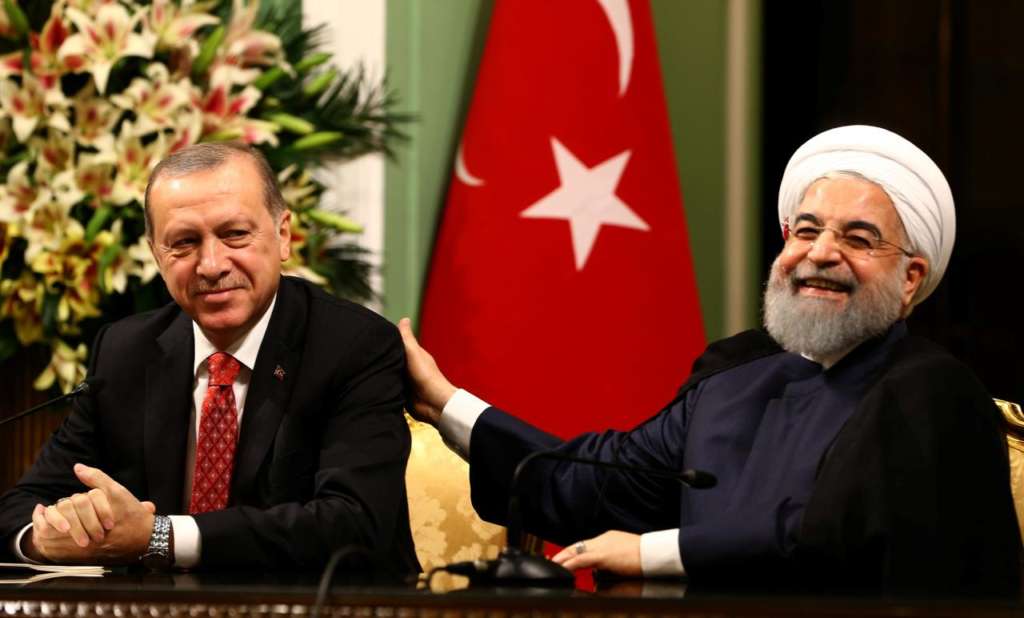London, Ankara — The leaders of Iran and Turkey renewed on Wednesday their warning of the separation of Iraq’s Kurdistan, in the wake of the independence referendum organized by the region last month.
They also agreed to “prevent the change of geographical borders” in the region.
Iranian Spiritual Leader Ali Khamenei met with Turkish President Recep Tayyip Erdogan and voiced fear over the positions of Western countries, which he said were claiming to reject the referendum.
“The stances of America and foreign powers cannot be trusted … They are seeking a new Israel in the region,” he stated.
Upon his arrival to the Persian State, Erdogan met with Iranian President Hassan Rouhani, where talks focused on the Kurdish referendum.
During a joint news conference, Rouhani called on the leaders of the Kurdistan region to go back on the “wrong decisions”, stressing that the Turkish-Iraqi-Iranian alliance “is forced to take necessary and serious measures to achieve its strategic objectives in the region.”
The Iranian president, however, stressed that he rejected attempts to exert pressure on the people of Iraq’s Kurdistan, saying: “We cannot accept separation in the region… Syria and Iraq are two united countries and we do not accept changing geographical boundaries in any way.”
He added that Iran and Turkey would work together to “face the disintegration of Iraq and Syria and reduce tension in the region.”
For his part, Erdogan attacked the Kurdish referendum, highlighting his rejection of what he described as a “decision taken by the [Israeli] Mossad.”
“Iran and Turkey have taken a firm position that the central government in Iraq is legitimate and the referendum is illegal,” he stated.
In parallel with political issues, Rouhani pointed to economic talks between the two sides.
He said that the two countries have taken important decisions in the joint meeting of strategic cooperation, with the aim of developing trade ties, including the expansion of banking relations and trade in local currencies.
He added that Iran has expressed its readiness to provide Turkey with the required facilities in the areas of tourism, petrochemicals, and infrastructure.
Meanwhile, in Ankara, Turkish Foreign Minister Mevlut Cavusoglu stressed the need to freeze the results of the Kurdish referendum, pointing out that he had proposed to mediate between Baghdad and Erbil “in an attempt to protect the rights of northern Iraq, but Barzani did not listen to Turkey.”
